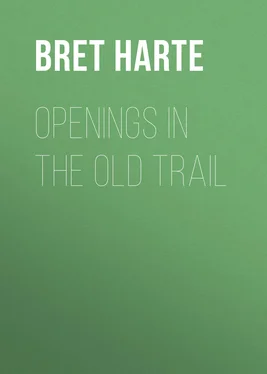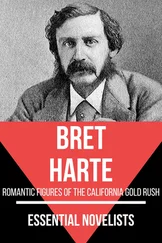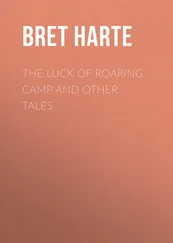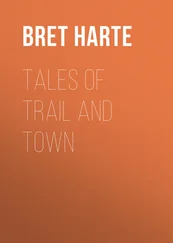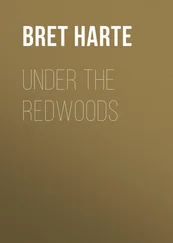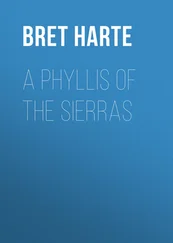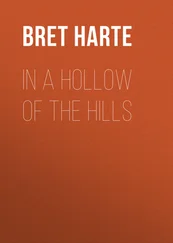Bret Harte - Openings in the Old Trail
Здесь есть возможность читать онлайн «Bret Harte - Openings in the Old Trail» — ознакомительный отрывок электронной книги совершенно бесплатно, а после прочтения отрывка купить полную версию. В некоторых случаях можно слушать аудио, скачать через торрент в формате fb2 и присутствует краткое содержание. Жанр: foreign_sf, literature_19, foreign_antique, foreign_prose, на английском языке. Описание произведения, (предисловие) а так же отзывы посетителей доступны на портале библиотеки ЛибКат.
- Название:Openings in the Old Trail
- Автор:
- Жанр:
- Год:неизвестен
- ISBN:нет данных
- Рейтинг книги:3 / 5. Голосов: 1
-
Избранное:Добавить в избранное
- Отзывы:
-
Ваша оценка:
- 60
- 1
- 2
- 3
- 4
- 5
Openings in the Old Trail: краткое содержание, описание и аннотация
Предлагаем к чтению аннотацию, описание, краткое содержание или предисловие (зависит от того, что написал сам автор книги «Openings in the Old Trail»). Если вы не нашли необходимую информацию о книге — напишите в комментариях, мы постараемся отыскать её.
Openings in the Old Trail — читать онлайн ознакомительный отрывок
Ниже представлен текст книги, разбитый по страницам. Система сохранения места последней прочитанной страницы, позволяет с удобством читать онлайн бесплатно книгу «Openings in the Old Trail», без необходимости каждый раз заново искать на чём Вы остановились. Поставьте закладку, и сможете в любой момент перейти на страницу, на которой закончили чтение.
Интервал:
Закладка:
Bret Harte
Openings in the Old Trail
A MERCURY OF THE FOOT-HILLS
It was high hot noon on the Casket Ridge. Its very scant shade was restricted to a few dwarf Scotch firs, and was so perpendicularly cast that Leonidas Boone, seeking shelter from the heat, was obliged to draw himself up under one of them, as if it were an umbrella. Occasionally, with a boy’s perversity, he permitted one bared foot to protrude beyond the sharply marked shadow until the burning sun forced him to draw it in again with a thrill of satisfaction. There was no earthly reason why he had not sought the larger shadows of the pine-trees which reared themselves against the Ridge on the slope below him, except that he was a boy, and perhaps even more superstitious and opinionated than most boys. Having got under this tree with infinite care, he had made up his mind that he would not move from it until its line of shade reached and touched a certain stone on the trail near him! WHY he did this he did not know, but he clung to his sublime purpose with the courage and tenacity of a youthful Casabianca. He was cramped, tickled by dust and fir sprays; he was supremely uncomfortable—but he stayed! A woodpecker was monotonously tapping in an adjacent pine, with measured intervals of silence, which he always firmly believed was a certain telegraphy of the bird’s own making; a green-and-gold lizard flashed by his foot to stiffen itself suddenly with a rigidity equal to his own. Still HE stirred not. The shadow gradually crept nearer the mystic stone—and touched it. He sprang up, shook himself, and prepared to go about his business. This was simply an errand to the post-office at the cross-roads, scarcely a mile from his father’s house. He was already halfway there. He had taken only the better part of one hour for this desultory journey!
However, he now proceeded on his way, diverging only to follow a fresh rabbit-track a few hundred yards, to note that the animal had doubled twice against the wind, and then, naturally, he was obliged to look closely for other tracks to determine its pursuers. He paused also, but only for a moment, to rap thrice on the trunk of the pine where the woodpecker was at work, which he knew would make it cease work for a time—as it did. Having thus renewed his relations with nature, he discovered that one of the letters he was taking to the post-office had slipped in some mysterious way from the bosom of his shirt, where he carried them, past his waist-band into his trouser-leg, and was about to make a casual delivery of itself on the trail. This caused him to take out his letters and count them, when he found one missing. He had been given four letters to post—he had only three. There was a big one in his father’s handwriting, two indistinctive ones of his mother’s, and a smaller one of his sister’s—THAT was gone! Not at all disconcerted, he calmly retraced his steps, following his own tracks minutely, with a grim face and a distinct delight in the process, while looking—perfunctorily—for the letter. In the midst of this slow progress a bright idea struck him. He walked back to the fir-tree where he had rested, and found the lost missive. It had slipped out of his shirt when he shook himself. He was not particularly pleased. He knew that nobody would give him credit for his trouble in going back for it, or his astuteness in guessing where it was. He heaved the sigh of misunderstood genius, and again started for the post-office. This time he carried the letters openly and ostentatiously in his hand.
Presently he heard a voice say, “Hey!” It was a gentle, musical voice,—a stranger’s voice, for it evidently did not know how to call him, and did not say, “Oh, Leonidas!” or “You—look here!” He was abreast of a little clearing, guarded by a low stockade of bark palings, and beyond it was a small white dwelling-house. Leonidas knew the place perfectly well. It belonged to the superintendent of a mining tunnel, who had lately rented it to some strangers from San Francisco. Thus much he had heard from his family. He had a mountain boy’s contempt for city folks, and was not himself interested in them. Yet as he heard the call, he was conscious of a slightly guilty feeling. He might have been trespassing in following the rabbit’s track; he might have been seen by some one when he lost the letter and had to go back for it—all grown-up people had a way of offering themselves as witnesses against him! He scowled a little as he glanced around him. Then his eye fell on the caller on the other side of the stockade.
To his surprise it was a woman: a pretty, gentle, fragile creature, all soft muslin and laces, with her fingers interlocked, and leaning both elbows on the top of the stockade as she stood under the checkered shadow of a buckeye.
“Come here—please—won’t you?” she said pleasantly.
It would have been impossible to resist her voice if Leonidas had wanted to, which he didn’t. He walked confidently up to the fence. She really was very pretty, with eyes like his setter’s, and as caressing. And there were little puckers and satiny creases around her delicate nostrils and mouth when she spoke, which Leonidas knew were “expression.”
“I—I”—she began, with charming hesitation; then suddenly, “What’s your name?”
“Leonidas.”
“Leonidas! That’s a pretty name!” He thought it DID sound pretty. “Well, Leonidas, I want you to be a good boy and do a great favor for me,—a very great favor.”
Leonidas’s face fell. This kind of prelude and formula was familiar to him. It was usually followed by, “Promise me that you will never swear again,” or, “that you will go straight home and wash your face,” or some other irrelevant personality. But nobody with that sort of eyes had ever said it. So he said, a little shyly but sincerely, “Yes, ma’am.”
“You are going to the post-office?”
This seemed a very foolish, womanish question, seeing that he was holding letters in his hand; but he said, “Yes.”
“I want you to put a letter of mine among yours and post them all together,” she said, putting one little hand to her bosom and drawing out a letter. He noticed that she purposely held the addressed side so that he could not see it, but he also noticed that her hand was small, thin, and white, even to a faint tint of blue in it, unlike his sister’s, the baby’s, or any other hand he had ever seen. “Can you read?” she said suddenly, withdrawing the letter.
The boy flushed slightly at the question. “Of course I can,” he said proudly.
“Of course, certainly,” she repeated quickly; “but,” she added, with a mischievous smile, “you mustn’t NOW! Promise me! Promise me that you won’t read this address, but just post the letter, like one of your own, in the letter-box with the others.”
Leonidas promised readily; it seemed to him a great fuss about nothing; perhaps it was some kind of game or a bet. He opened his sunburnt hand, holding his own letters, and she slipped hers, face downward, between them. Her soft fingers touched his in the operation, and seemed to leave a pleasant warmth behind them.
“Promise me another thing,” she added; “promise me you won’t say a word of this to any one.”
“Of course!” said Leonidas.
“That’s a good boy, and I know you will keep your word.” She hesitated a moment, smilingly and tentatively, and then held out a bright half-dollar. Leonidas backed from the fence. “I’d rather not,” he said shyly.
“But as a present from ME?”
Leonidas colored—he was really proud; and he was also bright enough to understand that the possession of such unbounded wealth would provoke dangerous inquiry at home. But he didn’t like to say it, and only replied, “I can’t.”
Читать дальшеИнтервал:
Закладка:
Похожие книги на «Openings in the Old Trail»
Представляем Вашему вниманию похожие книги на «Openings in the Old Trail» списком для выбора. Мы отобрали схожую по названию и смыслу литературу в надежде предоставить читателям больше вариантов отыскать новые, интересные, ещё непрочитанные произведения.
Обсуждение, отзывы о книге «Openings in the Old Trail» и просто собственные мнения читателей. Оставьте ваши комментарии, напишите, что Вы думаете о произведении, его смысле или главных героях. Укажите что конкретно понравилось, а что нет, и почему Вы так считаете.
